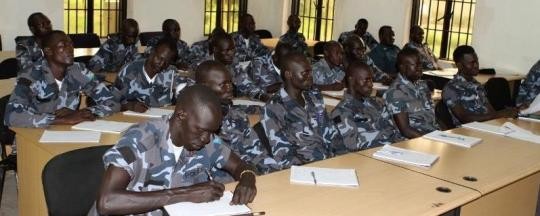The United Nations Office for the High Commissioner for Human Rights says that the UN should not provide any assistance including technical training or capacity building to the government of South Sudan because doing so would condone human rights abuses committed by the government.
In a report scheduled for release on Friday and seen by Radio Tamazuj, the UN’s leading human rights body said no new support should be given to South Sudanese authorities until major reforms are undertaken toward justice and accountability.
The report, compiled with the aim of improving the human rights, accountability, and capacity situations in South Sudan, listed numerous gross human rights abuses committed in South Sudan in 2015, mostly by government forces, which may amount to crimes against humanity. The abuses included the killing of over 7,000 civilians in Unity state, mass rape, and forced starvation.
“Supporting any capacity building activities to government entities would implicitly condone the violations contained in this report,” the UN Human Rights Office said. “Given the findings in this report, that in 2015, state actors primarily bore the greatest responsibility for the violations of both international human rights law and international humanitarian law in the face of a weakened opposition force, it is not timely to re-introduce UN assistance in the form of training and other support to government entities.”
The report noted that the UN had already spent a decade before the ongoing civil war supporting the South Sudanese state through training, with limited success.
Between 2005 and 2014, the report said, the UN’s capacity building efforts prioritized criminal justice with a focus on police, prosecutors, judges and prisons, as well as training on sexual and gender-based violence. The report added that international police and prison experts have worked in South Sudan training their South Sudanese counterparts for more than a decade too.
“However, despite the considerable human and financial capital expended, there was modest success in all of these areas,” the report said. “Some members of that same police force [supported by the UN] were implicated in the killings of civilians in December 2013.”
The report added that the government still has shown no serious committment to justice for crimes committed during the ongoing war.
The report’s recommendation against UN support to the government of South Sudan comes as national authorities are applying “considerable pressure” on the international community to restart assistance programs, most of which halted after the civil war broke out.
The UN Mission in South Sudan has already restarted some support programmes to South Sudan’s government, including by building roads, schools and drainage ditches, despite no longer being mandated to do so. UNMISS as well as the UN Development Programme have also restarted their support for South Sudan’s police force in Juba and in Wau by training officers for more than a year. Development agencies including the UNDP and UNICEF have begun lobbying donors to fund other initiatives in support of the South Sudanese state, too.
Meanwhile, some donor nations have stepped up their own support for the South Sudanese government despite the human rights abuses. Japan, for instance, assists the government’s customs department, is building major riverine infrastructure, and funds the state broadcaster SSTV.
The UN Human Rights Office said any new support from the UN to the government should be contingent on concrete changes taking place. These changes include forming the Transitional Government of National Unity and ending violence against civilians. The Human Rights Office said perpetrators of violence against civilians must also be removed from the government, SPLA, and other security forces. The report said the Transitional Government would have to cooperate with the Hybrid Court for South Sudan, too.
“If those commitments are made, the High Commissioner would encourage exploring technical support to aspects of Chapter V of the Peace Agreement, including assistance to consultations as well as a needs assessment to inform efforts aimed at truth, justice, reparations and reconciliation,” the report concluded.
Photo: UNDP police training




